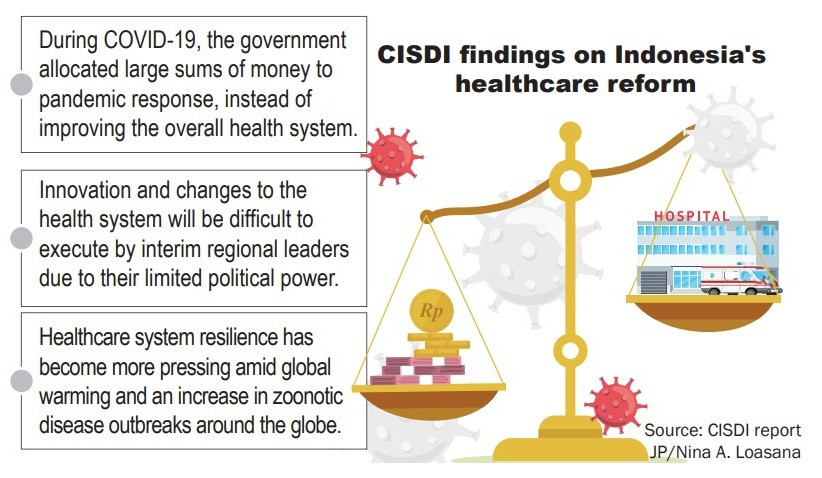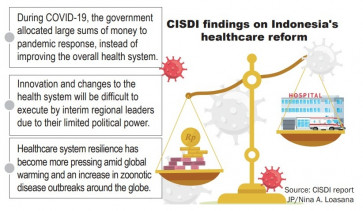Popular Reads
Top Results
Can't find what you're looking for?
View all search resultsPopular Reads
Top Results
Can't find what you're looking for?
View all search resultsIndonesia needs a strategy for new medicinal products coming to market
Lost in the country's healthcare transformation undertaking is the important issue of access to new medicines and technologies.
Change text size
Gift Premium Articles
to Anyone
I
ndonesia’s current healthcare transformation plan focuses on attaining pharmaceutical self-reliance, building a resilient healthcare system and improving timely and equitable access to high standard services. Very little attention has been paid to how new technologies can be introduced in the health system and hence reduce patient waiting time to access to new treatments.
After having successfully expanded the health insurance coverage (JKN), which is in itself quite an achievement, Indonesia is now facing the challenge of building a resilient health system to serve its large and aging population.
Improving the overall quality of care is Indonesia’s biggest opportunity to become a high-income country by 2045, but what we notice today is that the broader economic and social consequences of low quality care, including long-term disability, impairment and lost productivity continue to cost the country billions of dollars each year. A further challenge is that nearly 2 million Indonesians travel overseas every year for medical treatment.
In cognizance of the situation and anxious to address it, the government has put in place a noteworthy set of policy reforms to upgrade resilience, increase self-reliance and improve the overall health of the population. A few months back, the House of Representatives approved the new Health Law with its sweeping revisions to healthcare laws aimed at attracting foreign talent and transforming health services.
Lost in the healthcare transformation undertaking is the important issue of access to new medicines and technologies.
According to a recent report, Indonesians have access to less than 9 percent of new medicines launched globally since 2012. In addition, they have to wait for an average of 40 months before they can access new medicines after global regulatory approval. Private access is possible after the regulator grants marketing authorization, but for most patients, new therapies are not affordable on a private or out-of-pocket basis.
This means that patients in Indonesia are missing out on too many new and innovative medicines. Moreover, BPJS (healthcare insurance) patients have to wait five years or more for the few medicines they would eventually get access to through JKN. These medicines are often targeting a (high) unmet-medical-need and included in the national clinical guidelines.



















